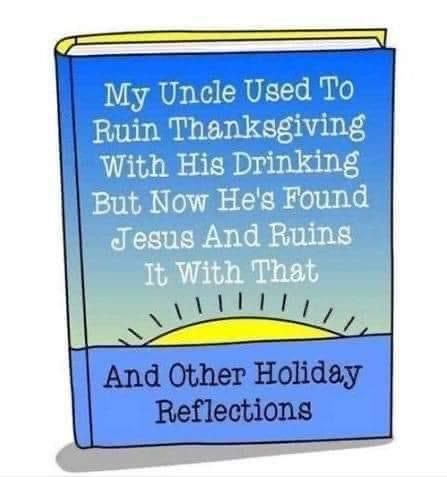Conversations with a Fundamentalist Christian: Part 3
The Problem of Evil

Introduction: The Oldest Question in Theology
The conversation always circles back to this: if God is good, why does evil exist? Philosophers call it the problem of evil. To ordinary people, it’s simpler: Why didn’t God stop the Holocaust? Why didn’t He protect children from priests? Why does He let cancer ravage babies?
For centuries, Christians have attempted to square this circle. Augustine, Aquinas, Calvin, and modern apologists all offer explanations. Yet in every age, the answers collapse under the weight of real suffering.
This dialogue continues the series “Conversations with a Fundamentalist Christian.” Unlike polite debates on doctrine, this one confronts the raw wound at the heart of faith.
The Conversation
Christian: God is good all the time. Evil exists because of free will. Without free will, we’d all just be robots.
Me: Free will doesn’t explain earthquakes, cancer, or hurricanes. Did a child choose leukemia? Did Haitians choose an earthquake? If your God designed the system, then He designed a world where death and suffering come standard. That’s not free will — that’s negligence.
Christian: But suffering teaches us lessons. God allows trials so we grow stronger.
Me: That might sound convincing to someone who’s comfortable, but explain that to a child raped by a priest or a family gassed at Auschwitz. What “lesson” makes that suffering worthwhile? The reality is that many don’t grow stronger; they’re crushed. If God needs millions of corpses to teach “resilience,” He’s not a teacher — He’s a sadist.
Christian: We can’t always understand God’s plan. His ways are higher than ours.
Me: That’s a convenient escape hatch. “Don’t ask questions, trust the mystery.” But a plan so mysterious that it justifies genocide and abuse isn’t a plan worth defending. If you wouldn’t excuse a human ruler who ignored such suffering, why excuse a God who supposedly could stop it with a thought?
The Free Will Defense
Apologists often point to free will: humans choose evil, God merely allows it. Evil is the price of freedom.
But this doesn’t add up. Freedom to love does not require freedom to gas children at Auschwitz. If God can set boundaries in heaven (where free will supposedly exists without sin), why not here?
Worse still, free will does nothing to explain natural evil — earthquakes, tsunamis, diseases. A virus doesn’t exercise free will when it mutates into a pandemic. When a fault line shifts and kills hundreds of thousands, that’s not human choice — it’s design. God supposedly wrote the code, and the code kills.
Philosopher J. L. Mackie (1955) pointed out that an omnipotent God could have created free beings who always freely choose good. The fact that He didn’t suggests either He isn’t omnipotent or isn’t good.
The “Soul-Making” Theodicy
Another answer is that suffering builds character. Theologian John Hick called this the “soul-making” theodicy: hardship shapes us into virtuous beings (Hick, 1966).
But tell that to a starving child in Somalia. Tell that to the 1.5 million children murdered in the Holocaust. Did they “grow” through their suffering? Or were they simply destroyed?
The “character building” excuse reeks of privilege. It is most often spoken by those who suffer least. Survivors sometimes find meaning in tragedy, but that is a human act of resilience, not evidence of divine pedagogy. To claim God engineered suffering for “growth” insults the dead and glorifies cruelty.
The Mysterious Plan
When other defenses fail, believers retreat to mystery: God’s ways are higher, His plan beyond comprehension.
This is less an answer than an admission: we don’t know, but we refuse to doubt. Philosopher Stephen Law (2010) calls this the “Evil God Challenge”: if we can excuse atrocities as part of God’s mysterious plan, why not claim the universe is ruled by an evil god whose mysterious plan occasionally allows good things? Mystery cuts both ways.
Elie Wiesel’s Night offers a chilling response. Watching a child hanged in a Nazi camp, someone whispered, “Where is God now?” Wiesel answered: “Here He is — hanging here on this gallows.” The mysterious plan was indistinguishable from abandonment.
Historical Atrocities and Theological Failure
The Holocaust
Six million Jews prayed to a God who never showed. To say “God allowed it for a greater good” is obscene. As philosopher Richard Rubenstein argued in After Auschwitz (1966), such horrors broke the covenant itself. A God who could permit Auschwitz is either powerless or monstrous.
Clergy Abuse
For decades, Catholic priests molested children, protected by bishops who shuffled predators between parishes. Victims prayed for help, yet heaven stayed silent. To say “God allowed it for mysterious reasons” is a second violation.
Natural Disasters
From the Lisbon earthquake of 1755 to the Indian Ocean tsunami of 2004, natural disasters have killed millions. Voltaire, witnessing Lisbon’s devastation, mocked the idea of divine providence. What lesson was taught by children crushed under church rubble on All Saints’ Day?
Philosophical Perspectives
Epicurus
The problem of evil goes back to Epicurus (3rd century BCE):
- If God is willing but not able, He is weak.
- If He is able but not willing, He is malevolent.
- If He is both able and willing, whence cometh evil?
The riddle has never been solved.
Dostoevsky’s Ivan
In The Brothers Karamazov, Ivan rejects any heaven bought at the price of a child’s tears: “I hasten to return my ticket.” No paradise can justify atrocity.
Camus and the Absurd
Albert Camus, in The Plague (1947), rejected theodicies altogether. The world is absurd, indifferent, without divine oversight. The only honest response is rebellion: to resist evil, not excuse it.
Why Theodicies Fail
- They excuse evil instead of confronting it.
- They trivialize suffering by assigning it purpose.
- They contradict the very attributes of God they seek to defend.
If God is omnipotent, He could prevent suffering. If He is omnibenevolent, He would prevent it. That suffering exists in abundance is evidence against both claims.
Human Responsibility in a Silent World
The silence of heaven is undeniable. Prayers did not stop Auschwitz. Rosaries did not stop priests. Faith did not stop tsunamis.
The only justice humanity can count on is the justice we create ourselves. Courts, laws, medicine, compassion — these are our tools. To wait for God is to abdicate responsibility.
Camus put it best: “The only way to fight the plague is with decency.” Not prayers. Not excuses. Action.
Conclusion: The Unanswered Question
The problem of evil is not an abstract puzzle; it is the lived experience of billions. Free will, soul-making, and mystery fail to answer why innocents suffer. If God exists, His silence is indistinguishable from absence.
The fundamentalist insists that evil proves man’s need for God. The skeptic replies: evil proves God either does not exist or does not deserve worship.
Justice delayed is justice denied. Humanity cannot afford to wait for heaven. If morality has meaning, it must be lived here, in this world, by us.
Why This Matters
The problem of evil is not merely theology; it shapes politics, morality, and culture. A society that excuses suffering as part of God’s plan numbs itself to atrocity. A society that confronts evil without illusions accepts responsibility.
By rejecting the false comfort of divine accounting, we remind ourselves that justice is not a heavenly promise — it is a human duty.
References
Camus, A. (1947/1991). The Plague. New York: Vintage International.
Dostoevsky, F. (1880/1990). The Brothers Karamazov. New York: Vintage Classics.
Hick, J. (1966). Evil and the God of Love. London: Macmillan.
Law, S. (2010). The Evil-God Challenge. Religious Studies, 46(3), 353–373.
Mackie, J. L. (1955). Evil and Omnipotence. Mind, 64(254), 200–212.
Rubenstein, R. (1966). After Auschwitz. Baltimore: Johns Hopkins University Press.
Voltaire (1759/2005). Candide. New York: Barnes & Noble Classics.
Wiesel, E. (1960/2006). Night. New York: Hill & Wang.
Disclaimer
The views expressed in this post are opinions of the author for educational and commentary purposes only. They are not statements of fact about any individual or organization, and should not be construed as legal, medical, or financial advice. References to public figures and institutions are based on publicly available sources cited in the article. Any resemblance beyond these references is coincidental.











